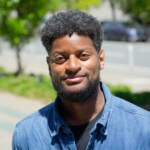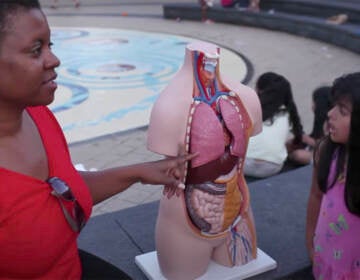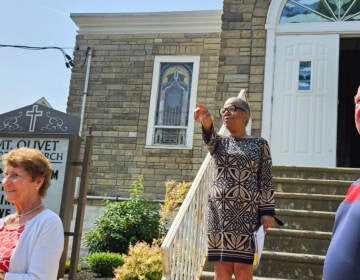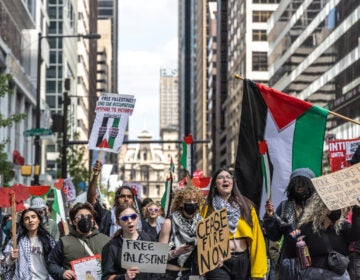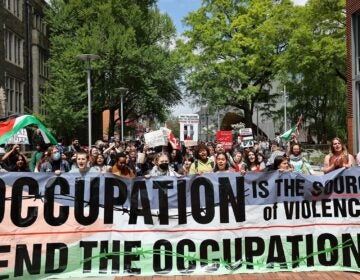‘I feel freer’: Concerned about the dangers of being Black in America, some are searching for freedom abroad
Some have waited decades to explore the world out of fear they’ll be targeted and discriminated against, while others have chosen to be expats.
Listen 6:16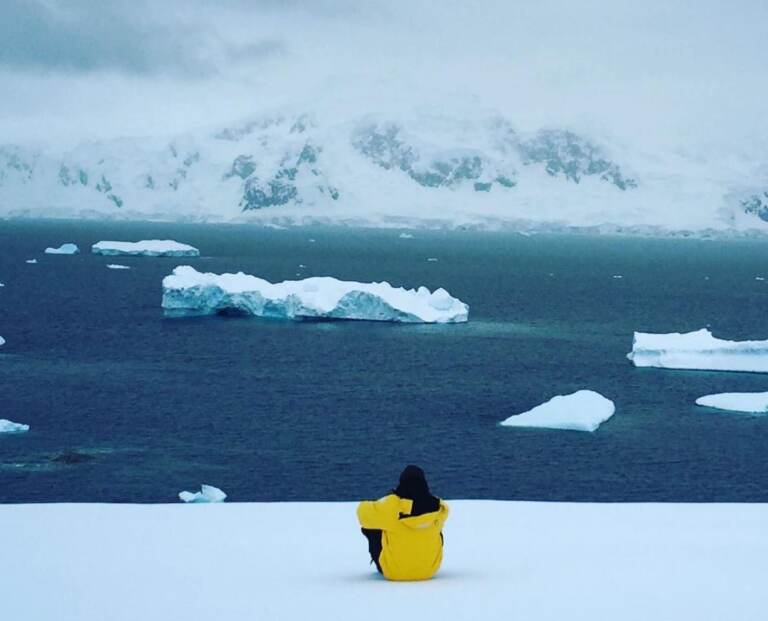
Lawrence Phillips, CEO of Green Book Global — a destination review and trip booking site for Black travelers — in Antarctica on a one week expedition overlooking the icebergs. (Courtesy of Lawrence Phillips)
For most of her life, Coretta Wright has always been reluctant to hop on a plane for far-flung locations.
“I was always afraid of traveling. A fear of what might happen — the unknown,” she said.
Wright was born and raised in Philadelphia to parents who struggled with addiction. Three days after her birth, Wright’s mother gave her up to her aunt and uncle, who were already raising five children.
By the time Wright was 12, Philadelphia elected Ed Rendell as the city’s 96th mayor and 76ers all-star Charles Barkley was traded to the Phoenix Suns. The Philadelphia of 1992 was transitioning out of the crack-cocaine epidemic of the 80’s — but that era also saw new forms of heroin introduced to the streets.
At the same time the threat of gun violence was growing. Law enforcement officials were coming to be viewed as likely perpetrators as opposed to protectors against gun violence in America; Philadelphia police officers were accused of shooting Charles Matthews, a 54-year-old Black man, 90 times.
Wright’s aunt and uncle tried to insulate their children from the stressors of living in a big city. Her uncle, in particular, wanted them to explore the world and its abundance of opportunities outside of North Philly. “He always wanted to give us different experiences,” she recalled. And traveling was an important part of it.
“We traveled to the Poconos pretty often,” she said. “We always went for Christmas, Thanksgiving, summers, and camping.”
Wright’s aunt and uncle eventually relocated the family to a small, north-central Pennsylvania town called Turbotville.
Today, Turbotville is a rural town that’s only half of a square mile and has a population of about 700 people. “It was just a better environment than Philadelphia was at the time,” Wright said,
But being the only Black girl in her school exposed her to racism that she wasn’t prepared for.
“They [children] called me the ‘N’ word left and right,” she said.
One day she was the target of cruel racist bullying and ran to her art teacher in the hopes of finding safety and consolation.
“He asked me, ‘Coretta, how long do you think racism will be around?’” she recalled. Feeling despondent and shaking, she answered, “‘Hopefully not long.”
But his response only caused more consternation than she was prepared for.
“He said, ‘Wrong, it’s going to be around forever.’” In that moment, Wright says she taught herself to always be alert about traveling through places. A recognition that “it’s not okay for me to travel wherever I want,” she said. “I felt very vulnerable. I’m okay with being in a place where I’m the only Black woman. I’m not okay with feeling like I’m the only Black woman. And for as much as I thought we were removed from some things, it still very much exists.”
When Wright was 14, her mother was in recovery from addiction, and Wright moved in with her and relocated to Las Vegas. Wright later moved to North Carolina and lived there until 2013.
Now 43 years old, she resides in Bala Cynwyd — located on the Philadelphia Main Line — with her three children.
‘I do not want to die in the United States of America’
Racial profiling hasn’t completely prevented Wright from moving around. Her best friend convinced her to buy her first international plane ticket, and she recently traveled abroad for the first time.
“I decided to travel [internationally] about a month ago,” she said.
That friend, 48-year-old Bala Cynwyd resident Denise Frazier — who has traveled to seven different countries within the past year — convinced Wright to buy a plane ticket to the Caribbean.
“Said that she was going to Jamaica for a couple of days and that all I needed to do was get my plane ticket and come on out,” she said.” And that’s what I did. I decided to jump on a plane.”
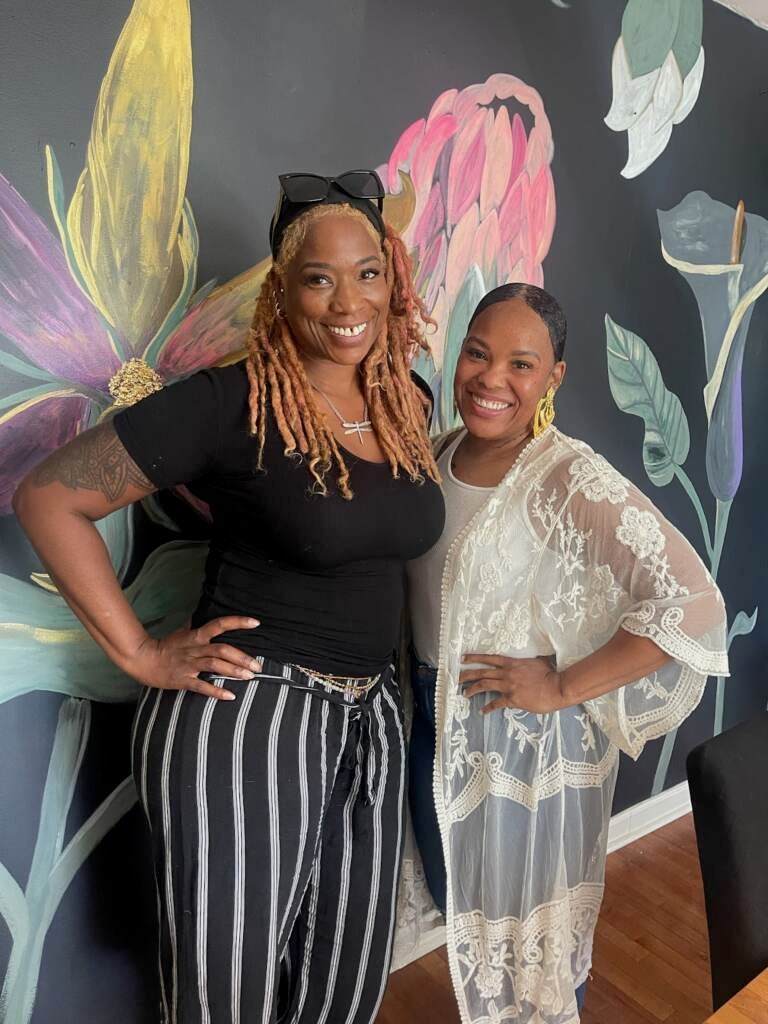
For many Americans, a summer trip to the islands is a popular choice.
When Wright landed in the island nation, she was emotionally overwhelmed. In some sense, she said, arriving in Jamaica mirrored a pilgrimage to Africa.
“When I landed, I cried,” she said. “Thinking about it now I want to cry. It was the most amazing experience — just hitting the land. It was beautiful.”
They ventured through parts of the country, most notably the “Blue Hole” in Ocho Rios — a popular location for swimming and waterfall adventurers.
“The first day we went horseback riding through the water,” she said. “It was so green and lush with agriculture. The sunshine was like gold, and even on a rainy day, it was liquid sunshine.”
Their island tour guide added to their experience with his insight and understanding of the country. Wright and Frazier marveled as he explained things about a bench that Queen Elizabeth II sat on, and took them to Rose Hall Great House — a historic plantation house in Montego Bay — known as one of the “most haunted” locations in the world.
“I was so impressed to hear him talk about his country with so much pride,” she said. “And I just love that [Jamaicans] know everything about their country and their culture. It was the best experience that I’ve ever had in my life. I didn’t realize how much I missed out on until I traveled to Jamaica.”
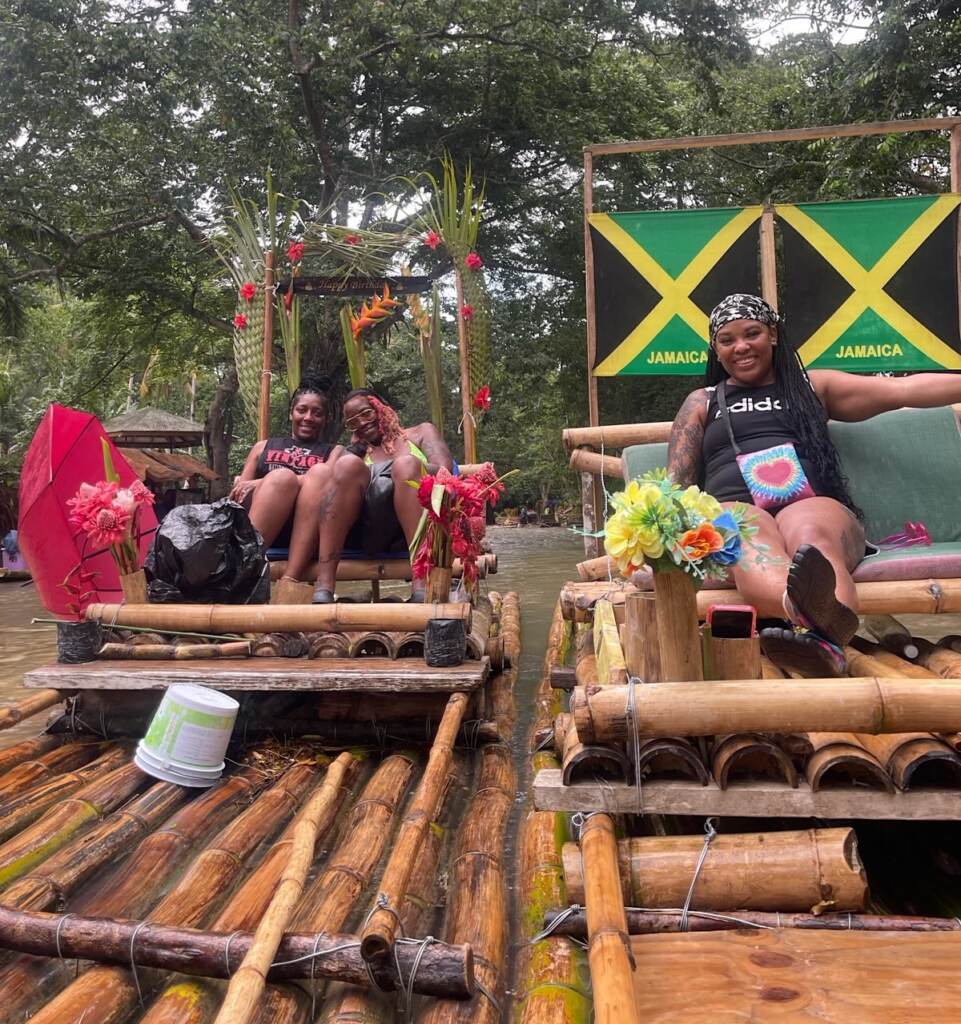
This wasn’t Frazier’s first time in Jamaica. It’s now the 48-year-old’s ninth time traveling to the country.
Growing up in Philadelphia, her family didn’t travel as much as Wright’s during her childhood. But Frazier became interested in traveling at an early age watching tourism commercials on television.
“Just the idea that there’s another world out there,” she said. “From a very early age, I knew that I wanted to get on a plane. Other cultures were out there and I just wanted to see it.”
Her first time flying on a plane was traveling to Jamaica in her early twenties. She couldn’t afford much, but that initial trip changed her life. “I was like, ‘Okay, I got to keep going. I want to see other things. I want to see other places. I want to see what other cultures have.’”
By 2021, Frazier traveled to Jamaica, London, Paris, Mexico, the Dominican Republic, the Bahamas,and Israel. But Jamaica is special to her.
“The people are very nice and kind,” she said. “It’s a huge island. It can take you hours to get from one place to the next. There’s always something to do.”
But it’s more than just leisure time away from mundane adult existence. Frazier feels a much deeper connection abroad. It stems from decades of living in the U.S. as a Black woman, and understanding the unrestrained joy by many Black people who don’t live with the threat of American violence at every turn.
“I am very much set on living outside of the United States. I do not want to die in the United States of America,” she said.
‘You can’t really go nowhere’
Experiencing culture outside of America is a freedom that Frazier persistently yearns for. But it’s a dream to pursue that’s not without trepidation.
She’s always reminded about what it’s like to “travel while Black,” and as a mother, those thoughts frequently manifest when thinking about her now 30-year-old son.
“He spent 10 years in Florida, and it was very hard to get him there,” she said.
Frazier’s son went to college in Florida to play collegiate football. He didn’t want to move from Philadelphia, but Frazier insisted on getting him to travel around the country.
“I remember it was either there or West Philadelphia,” she said. “And I was like, ‘No, you have to go.’ I think I still felt more comfortable with them being in Florida than being here.”
She’ll never forget the first time her son was stopped and frisked by a police officer during a vehicle stop.
“He knew exactly like I always taught him. ‘Put your hands on a steering wheel. Do not make any sudden moves. You look straight. When [the police] get to the car, do not move your hands — it is very important.’”
But even after complying, her son was thrown to the ground by police officers on suspicion that he had a weapon. It’s those moments when she recognizes what it’s like to exist as Black in America.
“When I visited Israel, I remember seeing a guy get pulled over by the police and I had noticed that the police officers don’t carry guns,” she said. “The military carry guns, but the police officers don’t. At the end of the day, no one got killed over it. I felt safer in Israel than I do walking the streets in North Philadelphia or West Philadelphia. And I grew up in the streets in the ‘80s, and I felt like I was safer then than I am in 2023. You can’t really go nowhere. You can’t enjoy yourself.”
Gun violence has remained at record highs in Philadelphia over the past few years, and every morning that Frazier wakes up to it, she’s somewhat envious of how people in other countries live.
“There are a lot of things that go on in other countries. I know and I get it,” she said. ”But it’s not as extreme. When you wake up every day and there’s 13-year-olds, 14-year-olds, 15-year-olds that are just dying in the streets, it’s like it’s normal. It’s not normal. Other people don’t live like that. Other people across the world do not live that way.”
But racial profiling is ubiquitous around the world. Frazier has experienced it firsthand during her times abroad.
“I’ve been in situations where … I do get stares,” she said. “The stares came from people who may have never even seen a Black person before in their life.”
When Frazier lived in Texas, she said some people were repulsed by the color of her skin, and her mere physical presence as well.
“I remember working as a waitress,” she said. “And I worked with a woman who would never touch anything that I touched. And I couldn’t understand why. So I said, ‘Let me ask you a question: I touch this cup. You won’t touch this. What is the problem?’ And she kind of froze up and she looked at me and said, ‘Well, you touched that cup and you’re Black.’ I laughed and said ‘So what do you think is going to happen to the cup?’”
‘Our history is our power’
Racial profiling — whether Black Americans travel domestically or abroad — is still a front of mind issue when traveling, points out Lawrence Phillips, founder and CEO of Green Book Global.
In 2021, according to the Pew Research Center, 75% of white Americans were more likely to have traveled abroad. Only 49% of Black Americans were much more likely to travel abroad. One reason might be the fear of racial profiling in any environment.
“I think traveling while Black really means something different to different groups of people depending on what your historical context is,” he said. “But for me, how I define it is ‘necessary.’”
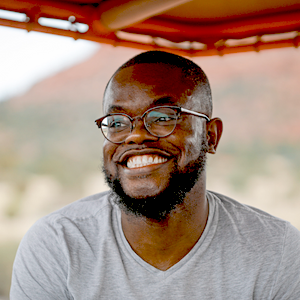
Originally from Boston, Phillips created Green Book Global as an online platform for Black travel reviews. The website is a community of Black travelers around the world who rate and determine what racism could look like for the next individual looking to travel.
The website’s name is also a nod to the 1936 historical Negro Motorist Green Book, written by Victor Hugo Green, which helped guide Black travelers around the world.
In 2015, Phillips came up with the idea after quitting a consulting job of eight years, feeling “super burnt out.”
“I decided to travel the world for a year, and I did 30 countries in all seven continents, including Antarcitica, in less than a year,” he said. “But while traveling, that’s where I got the idea — as I was going to certain destinations — I felt like, ‘Shoot, I don’t know if I should go here.’
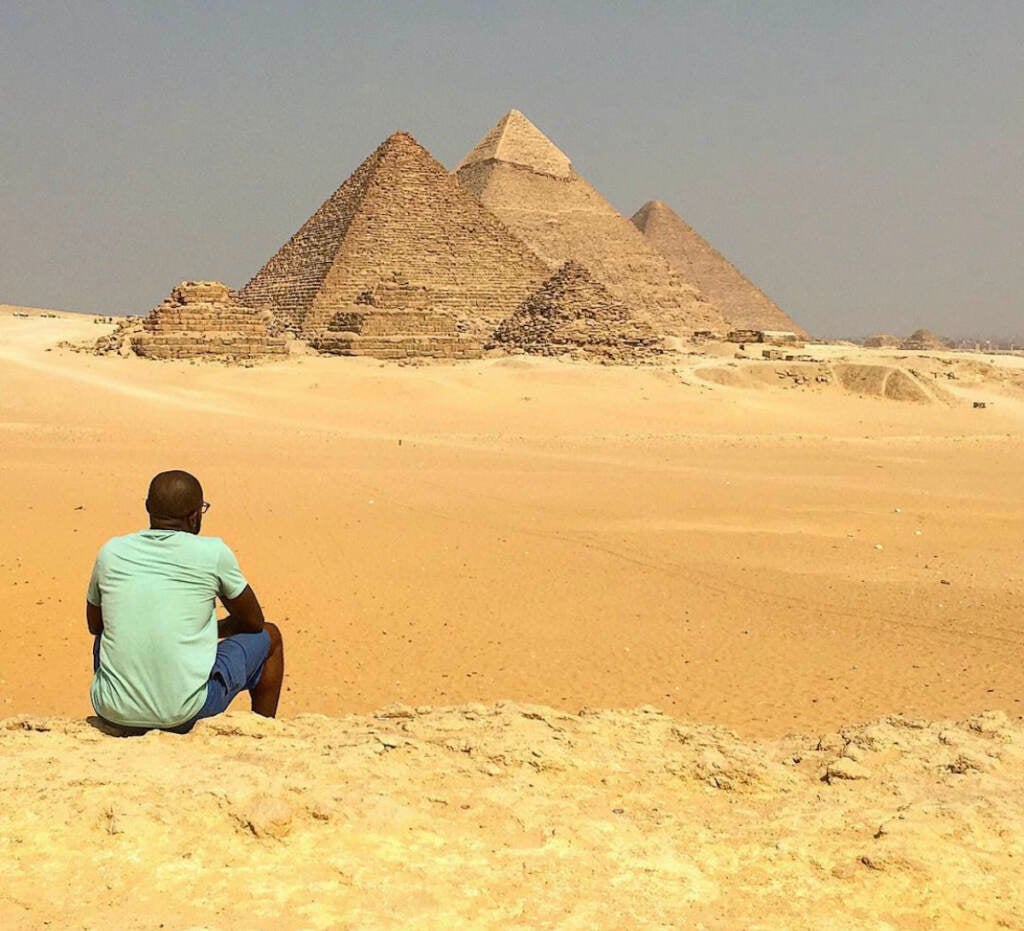
The online platform has reached thousands of Black travelers around the world. The site currently shares some 5,000 travel tips from more than 400 destinations. Phillips said that knowing the history of guides like the “Green Book,” is necessary to empower Black people.
“Our history is our power,” he said. “[The Green Book] was really the Black Bible during Jim Crow segregation. And it’s really specific for the U.S. and in the South. We’ve progressed in the Civil Rights era, but racism has also progressed. And so it’s really important to still have these types of tools, especially like the political environment.”
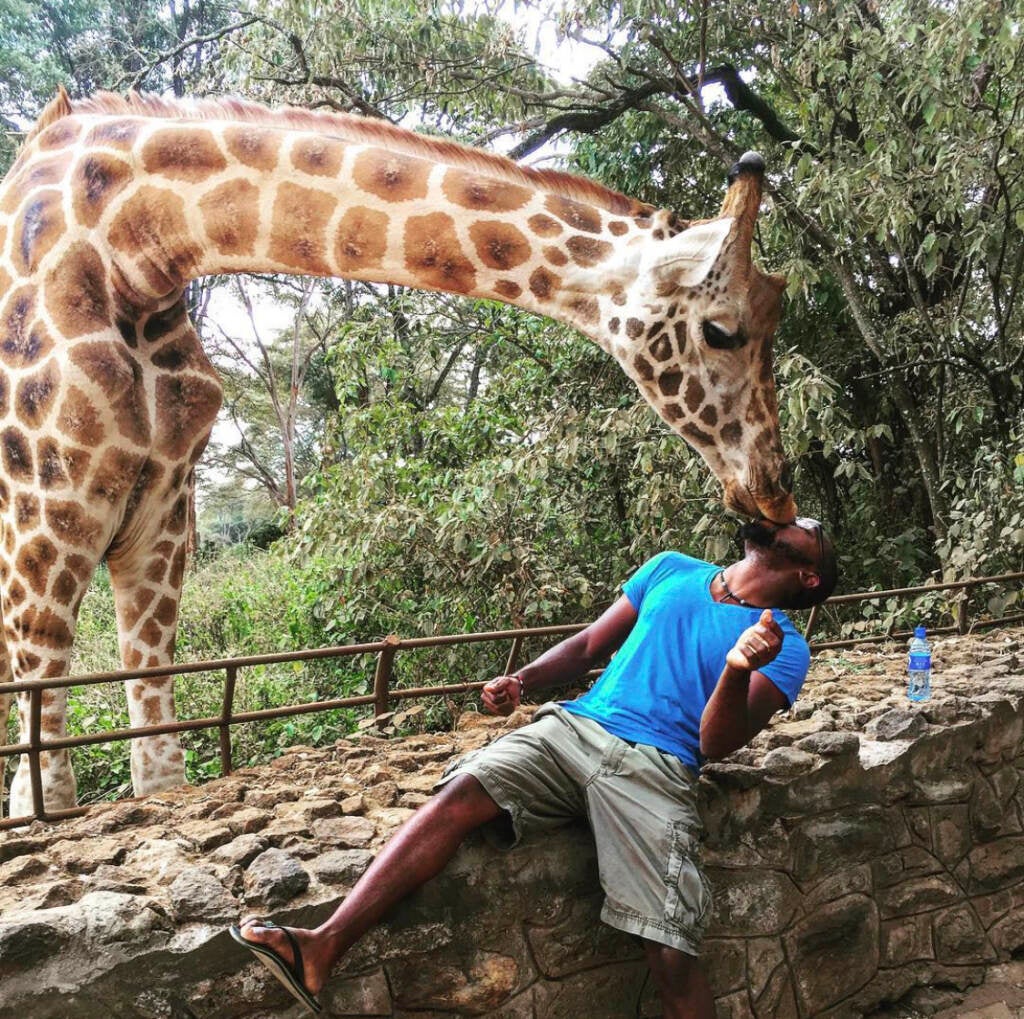
Living ‘without feeling constantly hunted’
In 2015, journalist Tomika Anderson, wrote a piece for The Root called “5 Places Black People Can Move to When They’ve Had Enough of America.” In her review, she highlights that no country in the world is a utopia, but traveling globally can still provide social safety for Black Americans outside of the United States.
“It’s not just being Black,” she said. “It’s being able to enjoy your life. The culture of capitalism in the way it exists in this country makes it sometimes really hard. It makes it so that we have to take our two weeks vacation and just tour some place as opposed to living in a place where joy and relaxation and simple pleasures are built in.”
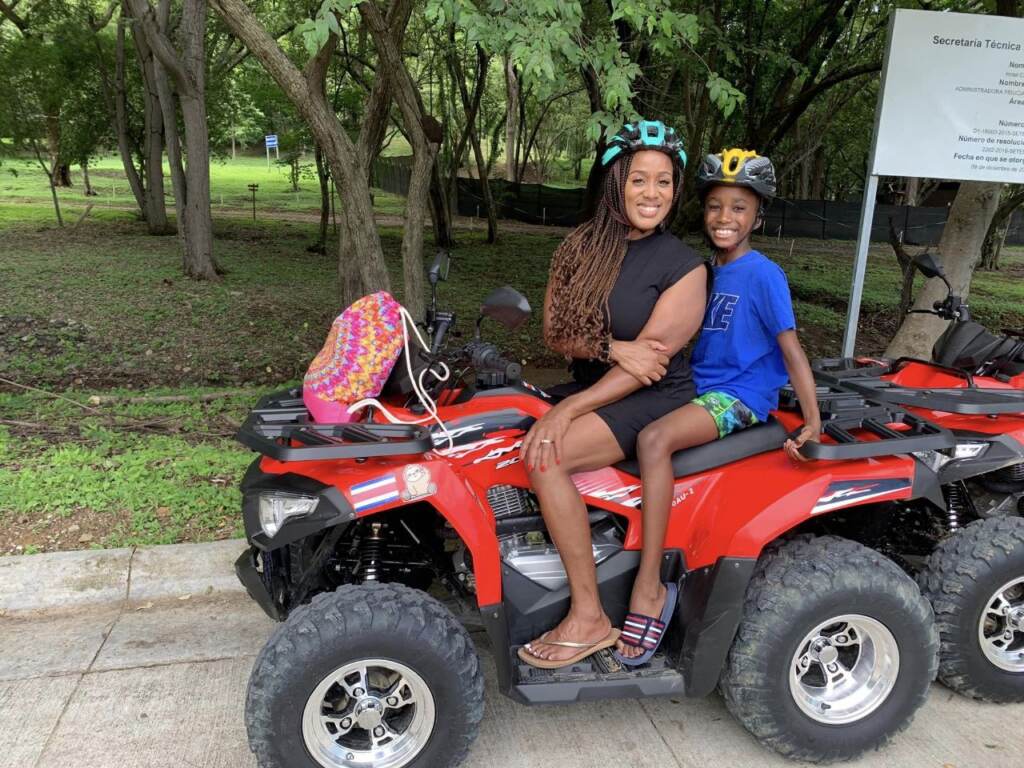
Anderson has traveled to multiple countries throughout her life. She mentions several of them in her piece, including Thailand and Costa Rica, which is where she and her husband plan to obtain citizenship.
In the late ‘80s, her family lived in Germany, as her father — a West Point graduate — served in the military and was stationed there.
“My dad being in the military was one of the best things that ever happened to me,” she said.
“So when my parents had the opportunity to take us and to travel when my dad was stationed in Germany, they never came back to the United States during breaks,” she said. “They would always take us to travel. I had the benefit of traveling with my younger brothers during summer breaks to Morocco, Turkey, Paris, and even Amsterdam.”
She learned from her travels that she did not have to stay in the United States. “I also really want to make sure that my son always grew up knowing that he didn’t have to stay here either,” she said.
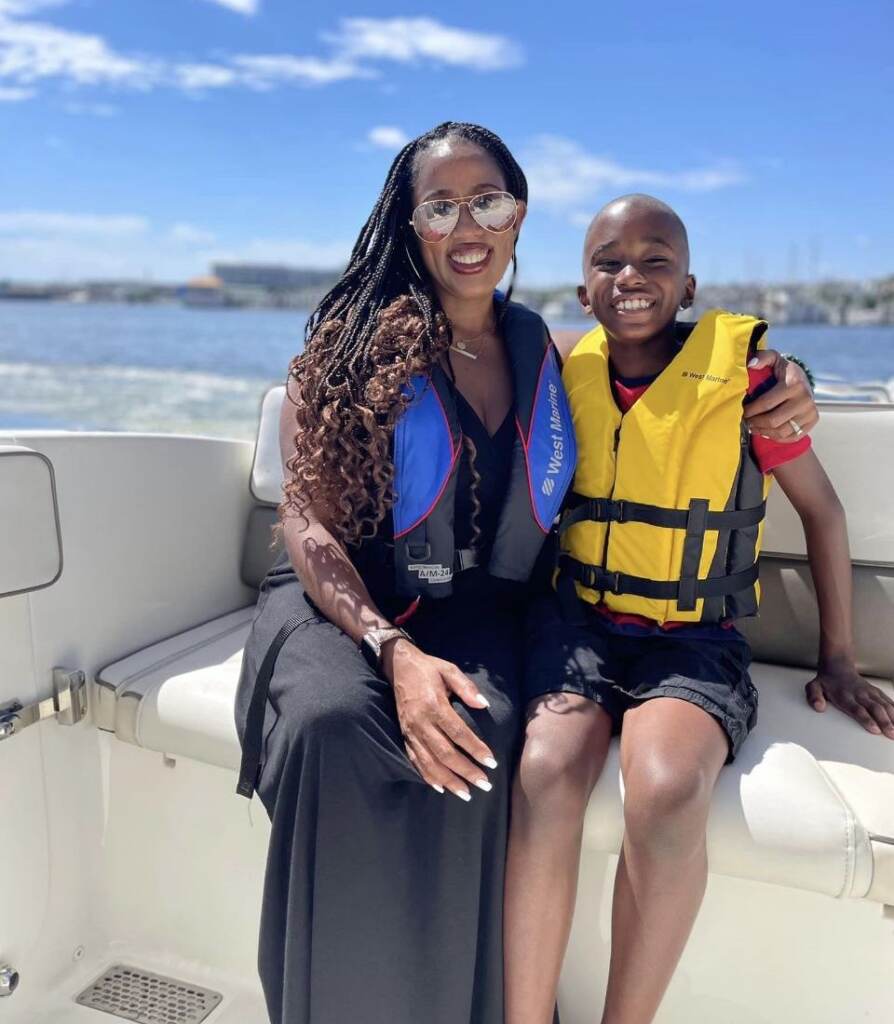
When Anderson was five months pregnant with her son, she started a group called Single Parents Who Travel. It started as a community of four or five of her friends. Within the past 10 years, the group has grown to more than 12,000 globally. A vast majority of members are also Black women, which Anderson says isn’t an accident.
“Being in places where people look like you, speak a language that you’re interested in, who are welcoming to you, there’s joy — there’s relaxation. There’s the ability to live without feeling constantly hunted,” she said.
She also echoed a sentiment similar to Denise Frazier’s.
“I do not want to die here [United States]. I don’t want my kids to die here,” she said.
Placing ‘an entire ocean between me and everyone I knew’
Twanna Hines — who currently resides in Lisbon, Portugal — made the difficult decision to move to another country after observing and experiencing racism first hand.
“The amount of violence in the United States cannot be overstated,” she said. “Removing myself from that environment has done wonders for my mental health. As a Black American woman living abroad, I feel freer.”
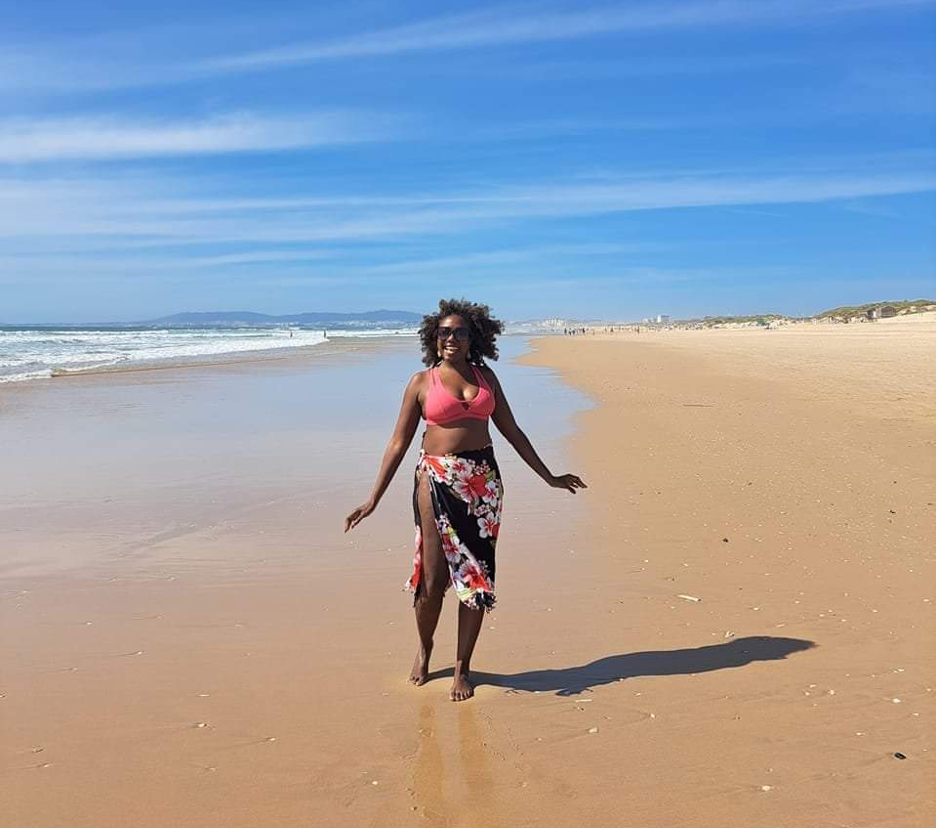
A sexual and reproductive health educator, and founder and CEO of Funky Brown Chick, she has previously lived in the Netherlands and England.
“When I went hiking on my own, I felt a little bit more protected,” she said. “Almost every woman I know who’s hiked on her own has a story about being followed or being made to feel uncomfortable when they were on the trails away from everyone else, or a story about being followed home from a bar late at night.”
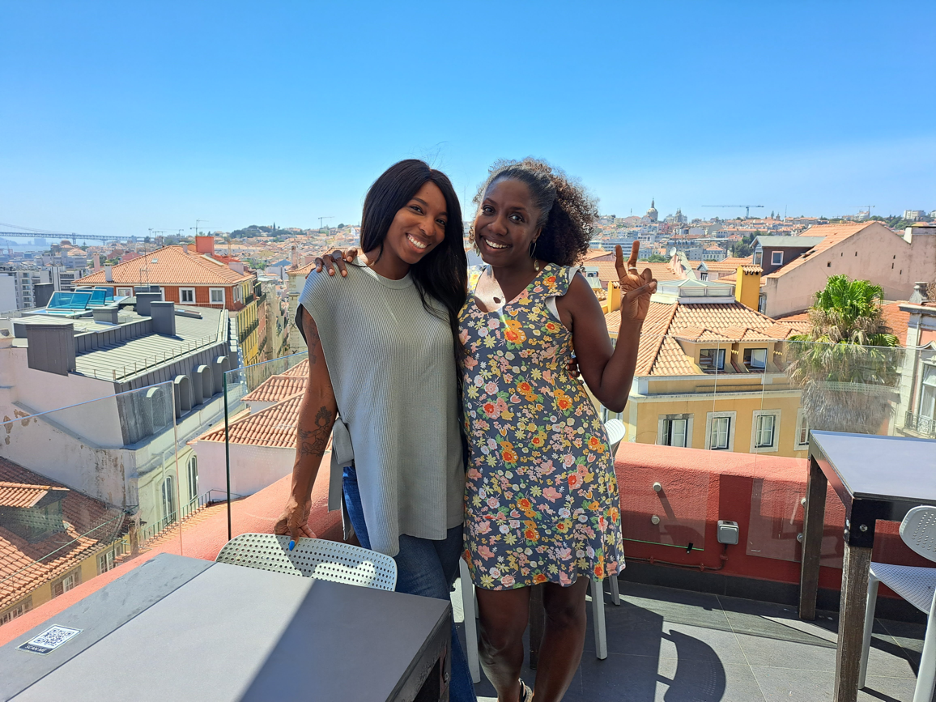
Hines calls living as a Black American an experience that sometimes feels like a “collective level of PTSD.”
“It manifests itself if you hear a very loud ‘pop’ sound — we wonder if it was fireworks or a gunshot. It manifests itself in ways of being in a really crowded space and being highly aware of where the exits are. It manifests itself in encounters with the police and wondering, ‘Is this going to actually be a life-ending event,’”she said.
She was in her early 20s when she told her family that she wanted to move to Canterbury, England. Her parents were aghast and wondered why she would leave “the best country in the world.”
“It’s very hard to feel at home in the United States when it’s a country that can also target you violently,” she said.
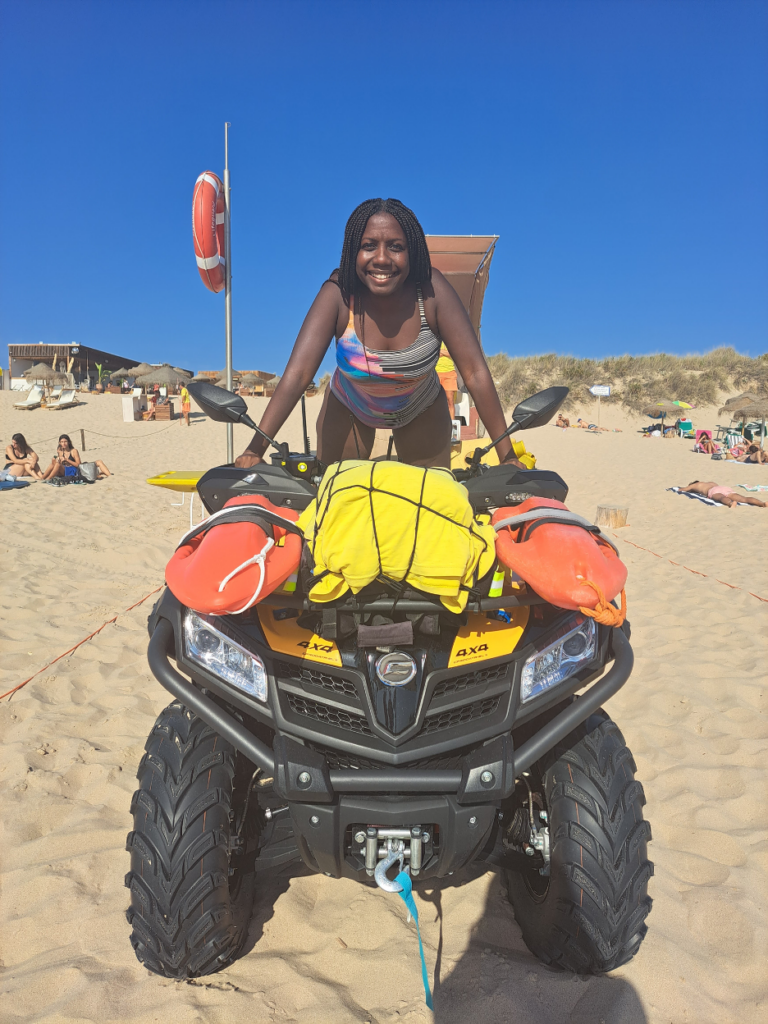
She still has friends and family that ponder whether or not she’s making the best decision to live abroad.
“When people ask me things like, ‘Is there racism in Portugal,’ I ask, ‘Is there racism in the United States?’ So we have to start with a realistic understanding of what the choices are. You’re not choosing utopia. You’re choosing your current state, versus what you want your present state to be.”
“The decision to place an entire ocean between me and everyone that I knew and everything that was familiar is not one that I took lightly,” she said.
“There are times where you feel lonely,” she said. “There are times where you’re going to miss a funeral, or a wedding, or a birthday. There are times when you experience something really special, and no one knows you or why it matters to you in a way that your friends back home would. There are times when you just get tired of eating local food and you just want to eat your mom’s pork chops and greens, or cabbage and cornbread, but you just want what’s familiar.”
But when reflecting on her choice to make such a monumental, life-altering decision, she said, “I am 100% fine with the choice that I made.”
Support for WHYY’s coverage of health equity issues comes from the Commonwealth Fund.

Get daily updates from WHYY News!
WHYY is your source for fact-based, in-depth journalism and information. As a nonprofit organization, we rely on financial support from readers like you. Please give today.


